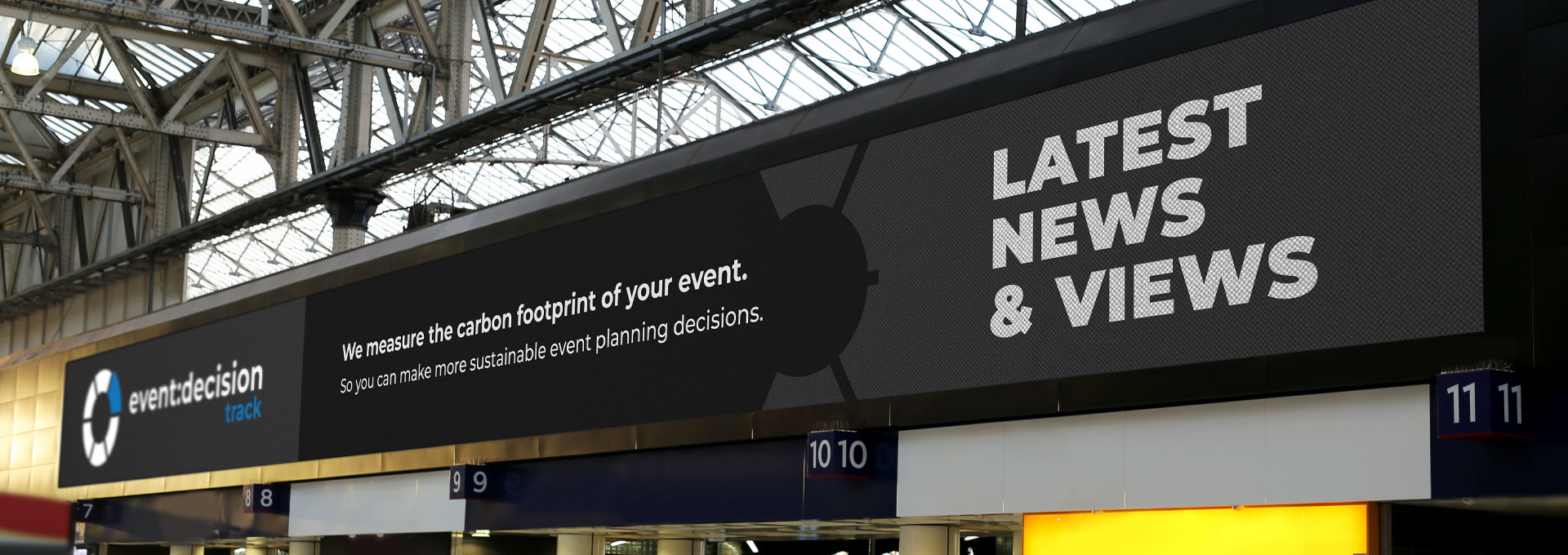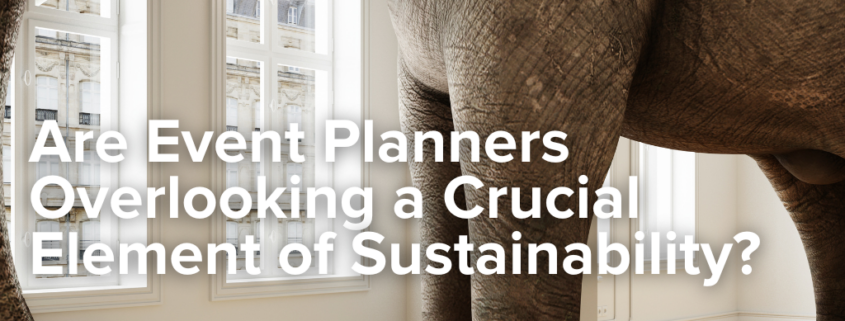Are Event Planners Overlooking a Crucial Element of Sustainability?
There’s an elephant in the event sustainability room
In event planning, ‘sustainability’ is often a buzzword. But are we, as event planners, really embracing its full scope? A recent report, “Shaping a Sustainable Future – One Year On,” should prompt us to reconsider our approach, especially in areas we might be overlooking.
Delegate travel
One glaring omission in many sustainability discussions is delegate travel. Surprisingly, this aspect, which significantly impacts the overall carbon footprint of an event, often escapes the event planner’s sustainability checklist. The report suggests that while we focus on local elements like catering and venue operations, the journey of guests / attendees / delegates to and from the event can be the largest contributor to carbon emissions. This raises a critical question: Shouldn’t travel be a central focus for sustainable event design?
As event planners, we have the unique opportunity to influence and reduce the environmental impact of our events. The location and format of the event, which often fall completely under our remit, play a pivotal role in determining the travel requirements of delegates. By choosing locations that are easily accessible by sustainable transport options, or by organising events in regions with a high concentration of attendees, we can significantly reduce the carbon footprint.
It’s not just corporates that should be considering this – associations and sporting events need to understand the issue & mitigate as best we can. See this pieces on the impact of the recent Super Bowl, for example.
Engaging with delegates for sustainable choices
The report suggests a more proactive approach in integrating sustainability into event planning. This involves not just making greener choices in event execution but designing events with sustainability as a core consideration. This means thinking about sustainability from the inception of the event planning process, not as an afterthought.
A key strategy in enhancing the sustainability of events must be to engage with delegates. Understanding how attendees prefer to consume event content – whether live, hybrid, or virtual – can guide us in designing more sustainable events. For instance, a preference for hybrid or virtual formats could significantly reduce the need for travel, thereby lowering the event’s environmental impact. Hybrid and virtual events not only offer flexibility and inclusivity but also present a sustainable alternative by reducing the need for travel. These formats, when used effectively, can maintain, if not enhance, the engagement and value of the event while significantly reducing its environmental impact.
Incorporating measurement tools for event sustainability
Another key highlighted in the report is the lack of use of robust measurement tools, with 78% of event organisers saying they ‘thought‘ they had become more sustainable in the last twelve months. Without using accurate tools to measure the impact of various components of an event, including delegate travel, it becomes challenging to assess and improve sustainability practices. Adopting comprehensive measurement tools allows us to make data-driven decisions, ensuring that our sustainability efforts are not just symbolic but have a real impact. These tools exist now and it is perfectly possible to quantify sustainability, rather than just thinking or hoping that it is improving, with or without delegate travel
The insights from the report are a wake-up call for the event planning industry. It’s time to broaden our understanding and implementation of sustainability. This involves taking a holistic view, considering all aspects of an event, including delegate travel and the use of measurement tools, and actively engaging with attendees to understand their preferences. Our tool Impact, has been designed after requests from corporate event planners to be able to assess events across all the broader ESG (Environmental, Social and Governance) factors.
As event planners, we have a responsibility to lead the way in sustainability. By incorporating comprehensive sustainability measures, including a focus on delegate travel and measurement tools, and designing events with sustainability as a core principle, we can significantly reduce the environmental impact of our events. It’s time to embrace this challenge and set a new standard for the industry.
If you would like to find out more about how we could work with you to achieve all your event measurement goals in 2024, get in touch.








